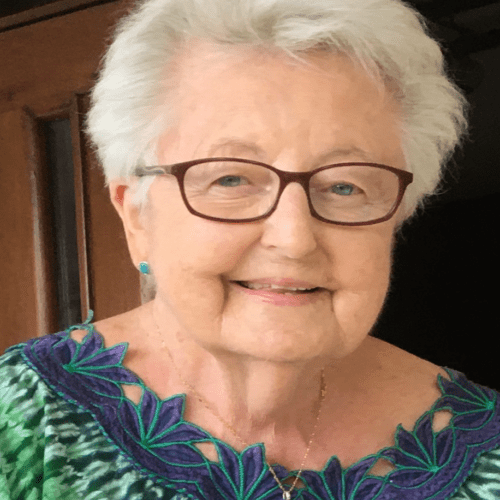What discipline does your current research cover?
Palliative care suitable to cultures and economies of African countries using Dame Cecily’s approach in controlling physical pain opening the door to the other aspects of pain, social, economic, cultural and spiritual
I understand you are working on controlling pain affordably and in a manner that is culturally acceptable in Uganda and Africa. Can you tell me more about that?
Yes, I first found when working in Singapore (1984) that patients who had not responded to disease specific treatments were going home in severe pan without pain control. Singapore already was importing morphine powder to make Brompton Cocktail which is a confusing mix of morphine, sedatives, anti-nausea and the local brew!!
Together with the pharmacists in the University hospital (NUH), we came up with a formula for pure oral morphine. We had pain controlled without side effects, within 48 hours in most patients and were able to titrate it against the pain allowing them to address family, cultural, spiritual, social and other problems which impact on physical pain and must be addressed. With patient and family.
My next post was as Medical Director of a new Hospice commencing in Nairobi. After my interview and offered the post, I left them with the curricula for our courses and the formula for oral morphine, should they get in the powdered morphine but told them that I could not come without oral morphine being available as the suffering, even in those discharged after disease targeted therapy, was huge Yet, I knew how it could be controlled. At that time (2000), the strongest pain killer was paracetamol. Codeine was available only to the rich as it was expensive.
But this oral morphine is so cheap. Still costs the price of loaf of bread.
This has allowed the Government of Uganda to have oral morphine free to all prescribed by a recognised prescriber which now also include Nurses, specially trained in palliative care and prescribing oral morphine.
How does your current research affect the public?
The main documented research is still ongoing. Meanwhile we are daily witnessing how pain can be completely controlled within 24-48 hours after diagnosis of the cause of the pian by our qualified specialist Nurses in palliative care. To date 35,000 of our 37,000 patients served in the 30 years, since we commenced, have died in peace with their families.
Tell us about how you started your journey in the pain field.
I was a consultant and senior Lecturer in Geriatric medicine, for 8 years in Merseyside, with the first University Geriatric Medicine Department in UK, with Professor Jimmy Williamson and in the University of South Manchester.
I taught geriatric medicine in both Universities. to under and post graduate doctors with Professor Jimmy Williamson.
But I was saddened by the fate of the elderly in long stay wards. Often in bed, if they became sick they were treated aggressively with antibiotics, as a younger person. There was no discussion with them, or if no able to discuss, with their relative/friend with power of attorney. Those on antibiotics often lingered on to a distressing death. Those not treated aggressively but with palliative care and discussions, often survived. I had heard of the great work of Dame Cecil Saunders. It was time to invite her to come and talk, not only to those working in the Geriatric long stay wards, but all the wards in the two hospitals, I was covering. Also to invite the GPs in the District, to attend her talk.
It took two years to gain a date but just before I was leaving to continue my support with teaching in the developing world, Dame Cecily came with her team, which included a GP, a Nurse and a Catholic Priest.
Why did you become a member of IASP?
Because I needed to get the message that out to colleagues in the world. that the use of oral morphine for severe pain by those trained in the different metabolisms of oral and parenteral solutions, the need for morphine to pass through the liver to produce M6G, which gives 47 times stronger pain relief than parenteral. Parenteral morphine, mainly is excreted through the renal system, by-passing the liver.


